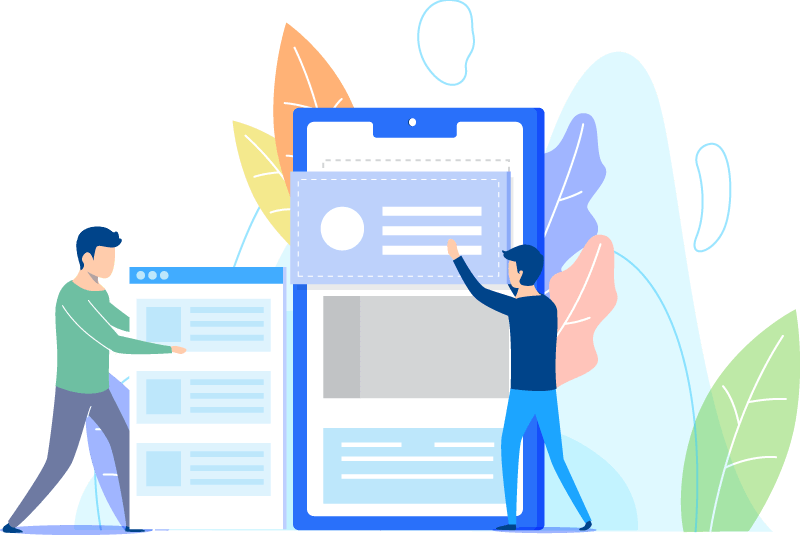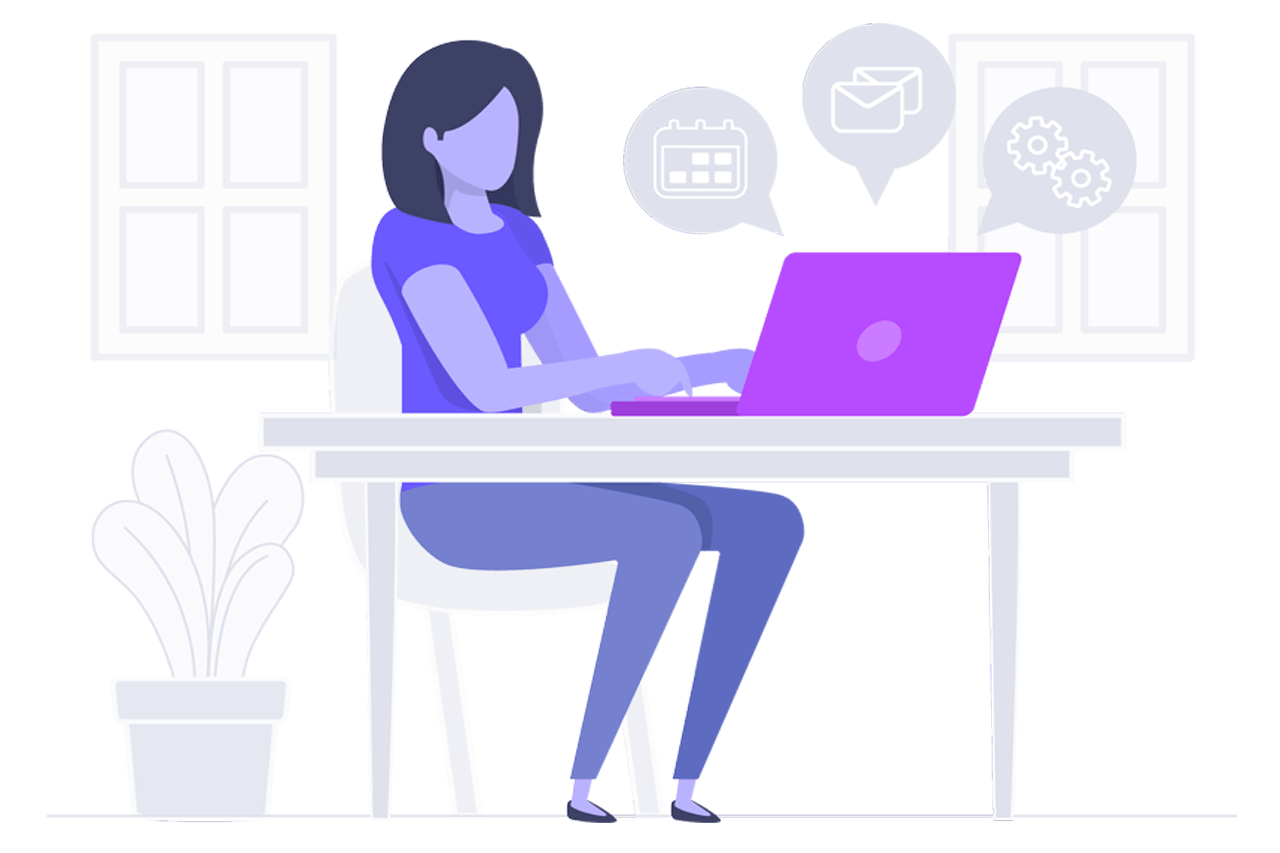Website Development Process - from design to launch
Learn our Website Development Processes for all types of Web Designs on the Central Coast

Crafting Exceptional Digital Experiences: Our Website Design Process 🖥️✨
At LOGUE Media, we believe that a well-structured web development process is key to delivering outstanding digital solutions. Our approach ensures that every project aligns with our clients’ goals and provides an engaging user experience.
Key Website Packages Takeaway
✅ Structured 7-Step Approach: LOGUE Media employs a comprehensive 7-step process encompassing Discovery, Design, Content Creation, Development, Testing, Launch, and Maintenance. This ensures a systematic progression from initial concept to final deployment.
✅ Client-Centric Collaboration: The process emphasizes active collaboration with clients, ensuring that the website aligns with their brand identity and business objectives. Regular feedback loops are integral to refining the project at each stage.
✅ Focus on Quality and Performance: Through rigoous testing and quality assurance, LOGUE Media ensures that the final website is not only visually appealing but also performs optimally across various devices and browsers.
See our exact Website Design Prices at
🚨 The Comprehensive Guide to Website
Development & Design Processes

Website development Process for Small to medium Businesses
We know how vital it is to get your new small business website up and running quickly and effectively.
That’s why we have developed our small business website process, which is perfect for small business websites where we can work closely and efficiently with business owners.
Our website process eliminates unnecessary steps and focuses on the most critical aspects of website development, ensuring that you get the very best result and importantly, value for money.
Week 0: Commercial Phase – finalise the Contract, Scope & Payments
1. Let’s chat about your website
Contact us for an obligation-free meeting by phone, webcam or in person. We need to understand your business, the people, product & services, industry & competition and the website requirements. There is a frequently asked question section on website packages you should read as this will trigger more questions about our website design packages, design services, the process & methology, and any other miscellaneous subjects. Finally, you will be issued with a website proposal for acceptance.
2. Let’s start your project
On acceptance of the proposal, an initial payment is required to commence the project. The initial payment is typically 50% of the total amount plus GST (Good & Service Tax).
Week 1/1/1: Requirements Definition Phase – establish client’s expectations
1. Get to know you
A video call or an in person meeting with a whiteboard will enable us to define your expectations.
2. Your expectations
We discuss in a level of details your expectations for the website project. Things we need to discuss include your company culture, company brand, colour schemes, typography and fonts, page names, navigation structure, connected pages and much more.
3. Establish Client’s content
You then provide any content, including branding, imagery and website copy.
4. Project Schedule
Establish a Project Schedule with Tasks, Deliveries and Interdependencies. It will vary based on the Client’s needs for a Microsite & Landing Pages, Websites and eCommerce & Marketplace platforms and the Pricing Packages selected. Typically, Microsites will be less than 4 weeks, Websites less than 5 weeks, eCommerce Shops less than 8 weeks.
Week 2/2/3: Design Phase – give the client options
1. Create Wireframe
Establish a Home Page Layout and any other Layouts for the Client or select a DIVI Template.
2. Create Prototype
Based on the Wireframe above start to add in conceptual content.
3. Compare options
The Client needs to compare designs against each other. We give Clients two (2) options to choose from.
4. Make a selection
Clients are encourage to make a selection from the 2 options above.
5. Minor Adjustments
Clients can make unlimited minor design changes but within reason.
A 30% OF TOTAL COSTS MILESTONE PAYMENT IS DUE ON THE DESIGN ACCEPTANCE.
Week 3/4/5: Conten Creation
1. Content Strategy
Planning and creating engaging, relevant content that aligns with your brand voice.
Incorporating targeted keywords to enhance search engine visibility and drive organic traffic
2. Create Theme Design
Create the header, Footer, Page, Post and Project theme layouts plus missing pages 404.
3. Create Webpages
Create base structure of webpages using the design layout. Place Heading 1, Subheadings, Video / Images / Audio in their place and “fake” copy. Establish parent, child and grand child relationships for the webpages
4. Create Navigation
Create the Menu and Sub-menu structure for the website
5. Page Relationship
Establish the relationship between pages and create internal links.
6. Create Forms
Build the forms that belong on the appropriate webpages.
Week 4/5/7: Customisation Phase – software development
1. Find Existing Software
Look to see if this software exists. This phase includes configuartion of existing plugins, add-on or extensions and eCommerce available to meet the needs.
2. Low Level Design
Software Engineer establishes a low level design (detail design) to build the software program against the requirements if no software exists.
3. Build Software
Create the software program to meet the client’s requirements.
Create the header, Footer, Page, Post and Project theme layouts plus missing pages 404.
4. Create Test Plan
Create Software Test Plan and the people involved to test the functionality developed.
5. Execute Tests
Execute the test scripts according to the plan. Record the results for regression tests and further development if necessary.
Week 5/6/8: Training Phase – software development
1. Identify Key Staff
Establish the key staff that needs to be trained. We provide a train the trainer approach. This staff member will be responsible for training other staff.
2. Undertake Training
Undertake training for the key staff.
3. Provide Support
We are available by email, phone and in extreme cases in person to provide support to the Client.
4. Quality Assurance:
Conducting thorough testing to identify and rectify any issues related to functionality, performance, and compatibility.
5. User Experience Testing:
Gathering feedback to ensure the website meets user expectations and provides a seamless experience.
FINAL 20% OF TOTAL COSTS MILESTONE PAYMENT IS DUE ON COMMENCEMENT OF USER ACCEPTANCE TESTING
Week 5/6/9: Release Phase – move software to production
1. Create Production
Create the production environment to be used in operations.
2. Schedule Conversion
Plan with the client dates and times suitable for conversion of software
3. Migrate Software
Migrate Software to the production environment for commercial operations.
4. Final Testing
Complete final regression testing of the software in the production environment for commercial operations.
5. Release
If the final testing is passed then the website is released to the client for commercial use.
Notes:
Week 1 / x / x = The First Digit (1 week) is for Microsite & Landing Pages
Week x / 4 / x = The Second Digit (4 weeks) for Websites Entry & Growth Plan
Week x / x / 5 = The Third Digit (5 weeks) for Advanced Plan Websites and eCommerce Plans
Marketplaces will be custom quoted.
Glossary of Terms
Wireframe
A visual guide representing the skeletal framework of a website.
Responsive Design
An approach to web design that ensures a site renders well on various devices and window or screen sizes.
SEO (Search Engine Optimization)
The process of optimizing a website to increase its visibility for relevant searches.
CMS (Content Management System)
Software that allows users to create, manage, and modify content on a website without the need for specialized technical knowledge.
Template Design
Custom Design
FAQs – Website Pricing
Q1: How long does the website development process take?
A1: The timeline varies depending on the project’s complexity and scope. On average, it can take anywhere from 4 to 9 weeks.
Q2: Will my website be mobile-friendly?
A2: Absolutely. We prioritize responsive design to ensure your website functions seamlessly across all devices.
Q3: Can I update the website content myself after launch?
A3: Yes, we provide user-friendly content management systems (CMS) that allow you to update content with ease.
Q4: Do you offer ongoing maintenance and support?
A4: Yes, we offer maintenance packages to keep your website updated, secure, and performing optimally.
Q5: How much does a new website cost?
A5: The cost depends on various factors, including design complexity, functionality requirements, and the number of pages. We provide detailed proposals outlining the costs involved.
Why Choose LOGUE Media? 🌟🤝
We don’t sell cookie-cutter websites. We create a system of digital assets that reflect your message, your brand, your business for any marketing channel.
✔️ Expertise: Our team comprises seasoned professionals with extensive experience in web design and development.
✔️ Customised Solutions: We tailor our services to meet your unique business needs and objectives.
✔️ Client-Centric Approach: Your satisfaction is our priority; we maintain open communication and involve you throughout the process.
✔️ Quality Assurance: We adhere to the highest standards to deliver a product that exceeds expectations.
✔️ Client requirements: Built around real user intent and goals
How May We Help You with your Website Project
Arrange a Web Development Appointment
See our exact Website Design Prices at

